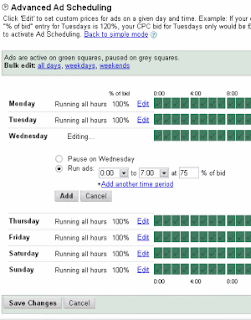I frequently read comments from supposed SEO experts regarding the importance of the H1 tag for search engine optimization. This has come from a variety of sources, from posts in various news groups to a formal report from an SEO company outlining its recommendations for various web sites.
However, my gut feeling about this has been that this tag is being over-emphasized, so I thought I’d ask around a bit and do some online research on the topic.
Again, I received some conflicting reports. For example, Jill Whalen of HighRankings.com felt that using the H1 tag doesn’t have much effect, if any (at least, as far as Google is concerned). However, Richard Ball of Apogee Web Consulting felt that using H1 (and H2) tags probably does make a difference.
Richard also raised a couple of other interesting points. First, whether there should only ever be one H1 tag on a page. Second, Richard speculated that, perhaps, Google prefers W3C compliant web sites and, as such, the structure of a page should possibly be undertaken by the correct usage of the H1, H2, etc. ("Hx") tags.
So, before we look further into the role of H1 in SEO, let's look further into the correct way to use the Hx tags.
Correct Usage of Hx Tags
First, I can find no authoritative text that states affirmatively that there should only be one H1 tag on a page. In fact, W3C simply states that H1 is for the most important headings, going down to H6 for the least important. Furthermore, the examples given on the W3C web site clearly presuppose multiple H1 tags on the page.
Second, when using different Hx tags, you should not skip numbers. Indeed, one page on the W3C web site states:
"Although the order and occurrence of headings is not constrained by the HTML DTD, documents should not skip levels (for example, from H1 to H3), as converting such documents to other representations is often problematic."
Third, using these headings in a logical and consistent manner, without skipping headings is just good practice and helps to define the logical structure of a document. This is particularly helpful for accessibility purposes. In today's CSS-oriented world, headings, subheadings, sub-subheadings, etc. are often indicated only by the use of visual cues, created with styles but often using the same basic tag, just with different classes. For example "div.heading", "div.subheading" and so on. Such markup provides no help whatsoever for visually handicapped users. Thus, if for no other reason, Hx tags should be used in the manner for which they were created in order to make your pages more accessible.
Fourth, and this is just my own personal belief, in an ideal, logical world, yes, there should be only one H1 tag per page. Thus, the ideal structure should be along the lines of
page title (using H1)
page subheading (using h2)
page sub-subheading (using h3)
page subheading (using h2)
page subheading (using h2)
page sub-subheading (using h3)
page sub-subheading (using h3)
page sub-sub-heading (using h4)
page subheading (using h2)
and so on.
However, what if your page doesn't have a main title/heading but, on the other hand, simply has multiple side headings of equal rank? On the one hand, there's the principle of one H1 tag per page but battling against that is the rule that you mustn't skip numbers. What to do?
In the past, I would probably have skipped the H1 tag and just used multiple H2 tags. However, my gut feeling now is that it is probably better practice to use multiple H1 tags in such a scenario.
It's also important to note that CSS now gives you the ability to control completely the look of your Hx tags. I have a feeling that, in the past, the rather pre-built look of these tags actually caused people to avoid using them because they didn't like their default appearance. However, today that reason is no longer valid; so I would ask you to reconsider using these tags for your section headings rather than DIV or P tags with associated classes and styles.
So, enough on the usage of these tags. Does H1 really play an important role in search engine optimization?
H1 and SEOAgain, my conclusion is an absolutely affirmatively definite "possibly." The reasoning behind this earth-shattering conclusion is as follows.
I am personally of the opinion that Google at least, and possibly other major search engines, really do give higher rankings, all other things being equal, to web pages with good HTML markup. I'm also a bit of an HTML purist (at least in theory, anyway) and I think that HTML tags should be used for the purpose for which they were initially created. Remember, HTML is really about document markup and
the way to markup hierarchical headings in pure HTML is by the use of the Hx tags. That being the case, it is logical for search engines to give greater weight to H1 tags. However, if it were that simple, our documents would use no tags other than H1 (which is certainly possible given the power of CSS), so I'm sure there are spam triggers that evalute whether H1 tags are being used in the correct manner or for the purpose of spamming search engines.
I've also read some affirmative statements online that Google's algorithm does weight the text within H1 tags more highly. However, none of the places I read that were particularly authoritative and, without the necessary insider knowledge, I'm still on the fence regarding that particular point.
The second reason for my conclusion is that, to quote an old Elvis L.P., "50,000,000 Elvis Fans Can't Be Wrong." Or, to put it another way, despite Jill Whalen's opinion, there seem to be so many SEO professionals, gurus, and guru-wannabees that promote the use of the H1 tag in particular for SEO purposes that, surely, they must have some reason for this . . . surely they must, mustn't they?!
I have to admit, I do question this logic though. I've seen so many cases of the blind leading the blind and a brainless "lemming-like" mentality, where people just believe anyone who sounds knowledgeable when it comes to the mysterious world of SEO, that it wouldn't surprise me in the least if Jill Whalen's actually correct!
In addition, I would offer a few words of caution.
First, don't overdo the use of H1, whether by putting too many H1 tags on a page or blatantly keyword stuffing your H1 tags. Doing so will almost certainly trigger some SEO spam thresholds.
Second, don't think that simply using H1 tags is going to be the miracle cure for all of your SEO woes. It may help, but if it does, it's probably the result of an improvement in your overall document structure and correct usage of HTML elements than the actual H1/Hx tags themselves.
Third, even if Google does give more weight to text inside H1 tags, the overall effect of that weight on your page rankings may still be minimal. There are certainly other factors that carry more weight than your H1 tags.
Finally, I would encourage you to experiment. Create some similar pages, some with headings in Hx tags and others using DIVs and classes/styles, then see which ones are ranking more highly after a few months.
Technorati Tags: seo, search engine optimization, html, html markup, h1 tag
 A complaint has been filed with the FTC (Federal Trade Commission) that challenges Google's proposed purchase of DoubleClick.
A complaint has been filed with the FTC (Federal Trade Commission) that challenges Google's proposed purchase of DoubleClick.


















